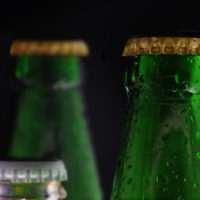Alcohol-Fueled Wreck Kills Child

A 44-year-old man faces DUI manslaughter charges after his stepson died in a single-car accident.
According to Port St. Lucie police, the man was northbound on Southeast Southbend Boulevard when he lost control of his SUV and struck a curb. The Mercury Mountaineer rolled over several times, ejecting an 11-year-old boy from the backseat. The man’s wife, who was in the front seat, and other stepson, who was also in the backseat, were both seriously injured and transported to a nearby hospital.
In addition to DUI with serious bodily injury, authorities also charged the man with aggravated child abuse resulting in great bodily harm, driving without a license resulting in death, child neglect with great bodily harm, child neglect, and child abuse.
First Party Liability in Alcohol-Related Crashes
Despite a decades-long law enforcement crackdown that has included tougher laws, more stringent enforcement, and heightened public awareness, alcohol is still responsible for almost a third of the fatal car crashes in Florida.
In criminal court, prosecutors must establish intoxication beyond any reasonable doubt, which essentially means that the state must have overwhelming evidence. But to establish liability for damages in civil court, victim/plaintiffs must only prove impairment by a preponderance of the evidence, and since impairment begins with the first drink, the task is much easier.
Given the low standard of proof, almost any evidence that the tortfeasor (negligent driver) had been drinking is sufficient to establish liability. Such evidence includes:
- Previous destination (g. did the tortfeasor just leave a bar?),
- Erratic driving,
- Odor of alcohol on the breath,
- Bloodshot eyes, and
- Unsteady balance.
If the tortfeasor was arrested for DUI and the civil jury believes that the tortfeasor is guilty of that offense, the tortfeasor is automatically liable for damages as a matter of law.
Third Party Liability
If the answer is “yes” to the hypothetical question in the first bullet above, Florida’s dram shop law may come into play. The same result applies if the tortfeasor was at any other place that sold or served alcohol in the hours before the crash. This law applies if the commercial provider:
- Sold alcohol to an underage person, or
- Furnished alcohol to a person who was “habitually addicted to the use of any or all alcoholic beverages.”
Most vendors are strictly liable for underage sales, so it is normally not a defense to say that the consumer “looked older.” Victim/plaintiffs may use circumstantial evidence to prove knowledge of habitual addiction.
Possible Defenses
If a passenger is killed or injured in a car wreck, insurance company lawyers almost invariably raise the assumption of the risk defense. Essentially, the theory is that victims who should know better are not entitled to damages. There are two elements:
- Completely voluntary assumption of
- A known risk.
So, in alcohol-related crashes, the victim must voluntarily get into the vehicle and subjectively know that the tortfeasor is dangerously impaired.
Partner with Assertive Attorneys
Victims of alcohol-involved crashes have legal options available. For a free consultation with an experienced personal injury lawyer in Port St. Lucie, contact Eighmie Law Firm, P.A. Home and hospital visits are available.
Resource:
palmbeachpost.com/news/crime–law/breaking-man-faces-homicide-dui-charges-crash-that-killed-stepson/NUlw9V2AUGu59I0gzpSh5K/


